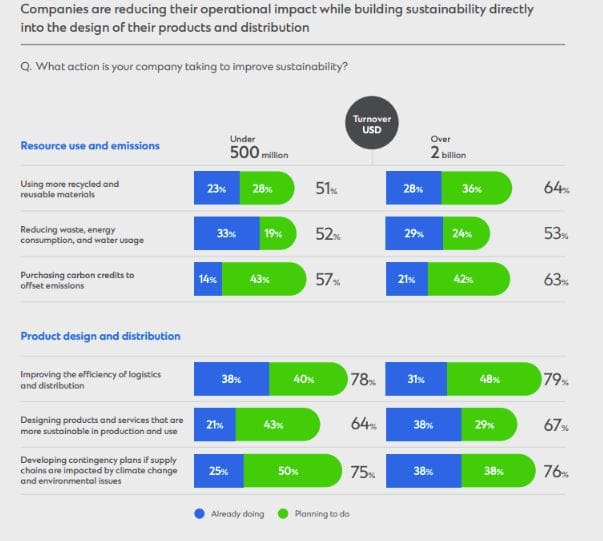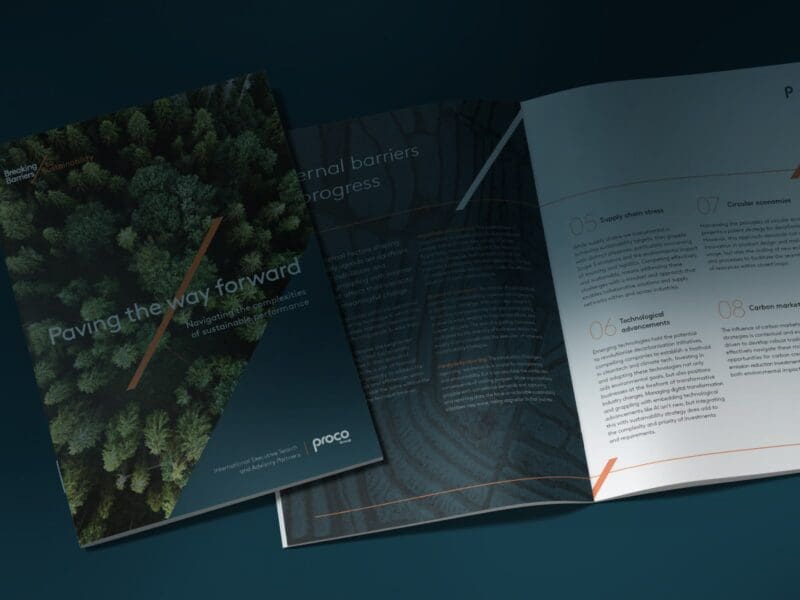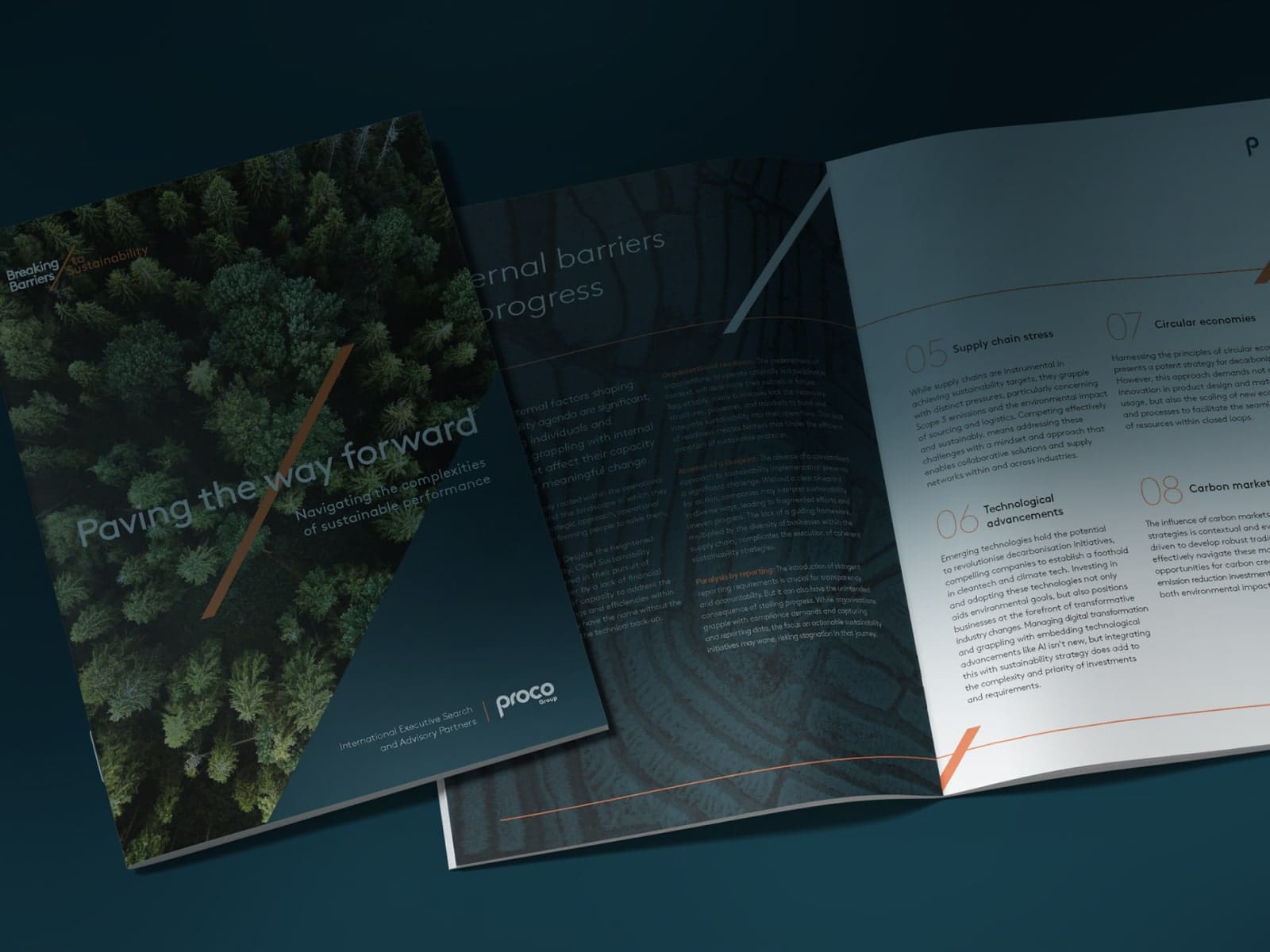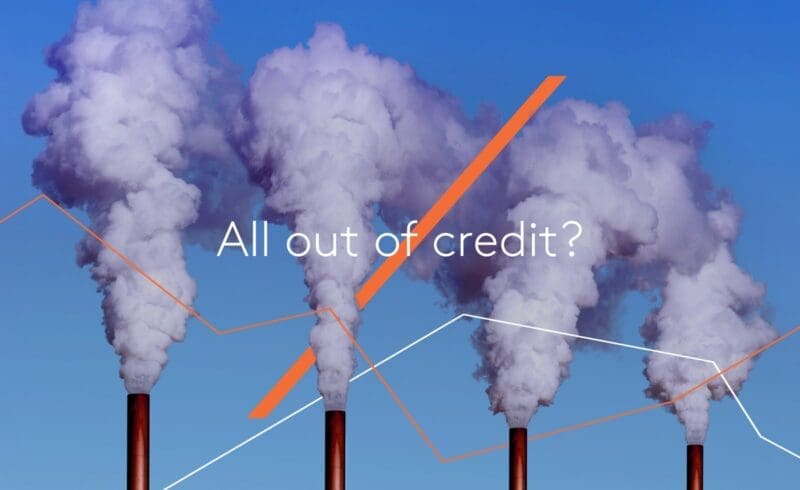Discover how to navigate the evolving voluntary carbon credits market amidst scepticism and regulation changes.
What is happening in carbon credits markets that is relevant to sustainability?
Voluntary carbon credit markets provide a powerful lever in building sustainable businesses as their rapid growth in recent years demonstrates — but they are going through a tricky moment defined by scepticism, questioning and self-doubt. Their basis in economics and practicability supports them at the same time as concerns about quality, veracity and efficacy threaten to undermine them, evident in Shell’s recent decision to end its plan to develop carbon credits.
The tension exists because they are the only proven and scaleable tool for private companies to mitigate carbon that cannot be replaced by renewable energy on the path to net zero. (Bloomberg New Energy Finance estimates what is a $2-billion market today could be worth $950 billion by 2037). And they give organisations an economically viable means to finance initiatives that address climate change and environmental degradation. This gives them a critical role in doing “everything, everywhere, all at once”, as UN secretary-general António Guterres urged in March 2023.
Carbon offsets will ultimately play a key role in companies’ sustainability strategies as new regulations will stabilize and increase trust in the markets. But capitalizing on these markets to create a smooth path to meet net-zero obligations may be difficult for some organizations that do not have trading desks or the talent and processes to effectively participate in those markets.
What does the increased scope of more broadly focused regulation mean for carbon credits markets?
The EU’s Corporate Social Responsibility Directive brings new standards for reporting on sustainability issues into force from 2024 for companies in or doing business in the region. They increase the scope of what organisations must disclose in terms of their emissions and those of their suppliers, as well as lifting the number of companies that must report, and be audited on the results.
The challenge for many companies is determining where the sources of reductions are that can show progress. As 70% of emissions exist in Scope 3, we expect consumer-facing firms to place significant pressure on their supply chain partners to reduce their carbon footprint. That, in turn, means that those in the supply chain will need to show real progress (for what is for them Scope 1 and 2 emissions) or face the reality that their customers may move their business elsewhere. This dynamic will likely drive demand in the voluntary market for carbon credits to create, because of emission trading schemes’ role in enabling carbon mitigation in the short term.
What does increasing focus on carbon credits mean for organisations in the future?
This period of flux and uncertainty is taking place in a market where rapid change will continue. New reporting requirements aside, the Integrity Council for the Voluntary Carbon Market’s introduction of a methodology and benchmark for the carbon market will also heighten scrutiny and standards.
Combined, the two regulations and benchmarking will necessitate increased focus on transparency about organisations’ use of carbon credits, and their underlying principles, in line with climate change goals, strategy and stakeholder requirements.
This effort will entail attention from leaders across supply chain; finance; marketing, sales and communications; and legal, risk & compliance functions.
This points to one of the critical issues that organisations face as they seek to balance their short-term financial results against longer-term goals and strategy to make their businesses sustainable: the integration of sustainability as a whole, including tools such as emissions trading schemes, into the company’s core.
It is notable that at Proco we are seeing evidence of how interest in this area is evolving as companies in unexpected industrial areas look to establish carbon trading desks, with an interest in hiring expertise from more mature parts of the carbon credits market, such as commodities traders. That is where the expertise is, and as the market becomes more regulated and significant, it will be challenging for organisations to operate without it.

Explore our sustainability campaign
Our campaign to help you navigate the complexities of the sustainability landscape.
Explore sustainability
Download our report
Paving the way forward: navigating the complexities of sustainable performance. Read the full report now.
Get report



